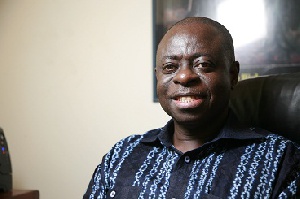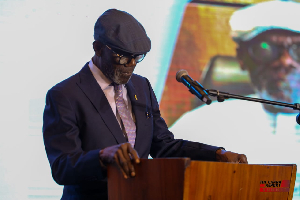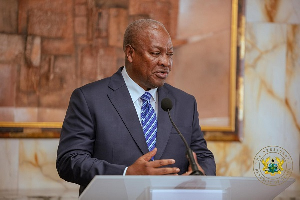Executive Director of research think-tank Ghana Centre for Democratic Development (CDD), Prof. Emmanuel Gyimah-Boadi has described as “archaic”, the law of ‘scandalising the court’ in relation to criminal contempt in Ghana’s jurisprudence.
He has, therefore, described as “contradictory”, the Ghana Bar Association’s (GBA) insistence that the status quo be maintained until Ghanaians and the media are better educated about the contempt laws.
According to him, the GBA’s position on the matter is not only confounding, but also defies logic.
He made the observation at a forum on the law of contempt organised by the research think-tank on Tuesday July 9.
“Today when you say we have to wait for the necessary public education to occur for the society and the media to be more responsible and for things to be more settled before laws that we all agree that are archaic should be expunged from our books, that to me sounds like a contradiction,” Prof Gyimah-Boadi explained.
The GBA, represented at the Forum by Public Relations Officer Tony Forson, disagreed with criticisms that the nine Justices of the Supreme Court hearing the election petition trial defied the principle that barred them from being Judges in their own court, when they prosecuted two people for criminal contempt.
Editor-in-Chief of the Daily Searchlight Newspaper Ken Kuranchie was sentenced to 10-days in prison for his paper’s attempt to justify the description of the Justices as “hypocritical and selective” by the Deputy Communications Director of the main opposition New Patriotic Party, Sammy Awuku.
The other Contemnor, Stephen Atubiga, a member of the governing National Democratic Congress’ communications team, was given a lesser sentence of 3 days for having vowed on radio that President John Mahama and the NDC will not handover the reins of government even if the Supreme Court pronounced a verdict in that regard.
In his defence of the Justices’ actions with regard to contempt, the GBA PRO said the nine-member Bench was essentially protecting the larger judicial institution and the society in general when it invoked its contempt powers to deal with the two contemnors.
The GBA also says it will not advocate the scrapping of the law of scandalising the court despite a move to that effect recently taken by England in a 2012 Act to effectively abolish the same offence.
“My attention has been drawn to the fact of the abolishing of the offence ‘scandalising the court in a 2012 Act in England, it is our considered opinion that our democracy has a lot of catching up to do by way of education to be able to stabilise itself before considering such a move,” Tony Forson noted.
General News of Wednesday, 10 July 2013
Source: XYZ













